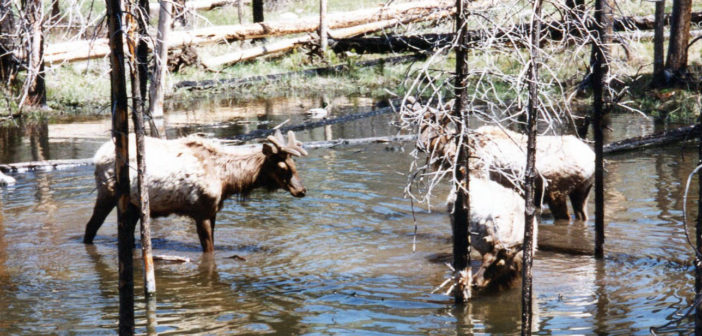For a long time wildlife has been considered a resource for humans. Policies have reflected this point of view and the animals’ needs and welfare have been considered only secondarily, if at all. This point of view is not at all in keeping with an environmental view of the world, or our place in it, and needs to be reconsidered.
U.S. wildlife policy and protection is the province of the states unless it concerns federal land. Every state has an agency that sets policy, but the vast majority of these commissions are heavily weighted in favor of hunters and ranchers. The agency in Colorado is one example of this imbalance. Colorado Parks and Wildlife sets hunting seasons, hunting quotas, and regulates trapping. The problem with the CPW commission is its composition. Of the eleven voting members on the commission, six are required by law to be hunters and ranchers. That is a majority and not at all reflective of the current demographics in the state. Given this composition, it is not surprising that the commission’s decisions are tilted to favor hunters and ranchers.
Actually there are two problems with the commission. Besides the demographic one described above, there is also a science problem. Most of the members do not have even a rudimentary scientific background, and only one is required to have any scientific background at all. They were appointed because they were hunters and ranchers and state law requires that composition. Therefore, it is not surprising that many of their decisions are not based upon science or environmental awareness. Instead they are based upon a desire to sell hunting licenses because that, together with taxes on guns and ammunition, is in large part how the agency is funded.
Here is one example of the kind of policies that the Colorado commission has created. There was a decision in 2016 to allow hunting of bears and mountain lions. They called it a “study” to assess the effect of predation on populations of mule deer. But previous studies have already made it clear that it is the availability of food, not predation, that determines mule deer populations. Because it wasn’t based on science, the commission’s decision was challenged and ended up in court.
This is typical of commissions in most states, but it can change with an evolving public awareness that there is a problem. The composition of wildlife agencies has not generally been questioned, and this has lead to poor policies. Discussion and networking around these issues will result in a determination of what changes are feasible in the short and long term.
There is a conference in Albuquerque, New Mexico on August 14th and 15th, 2018 pertaining to these subjects. This conference is vitally important as it will consider topics such as the source of funding for wildlife agencies and how the composition of such commissions might be broadened. Representatives from the public, academia and the agencies are invited. This is an opportunity for all interested parties to network and organize for conscious change.
Learn more and register to attend the Wildlife For All conference.
Featured image: elk in Yellowstone National Park. Image courtesy Kim Bartlett / Animal People, Inc.





